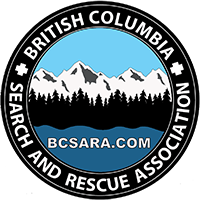 Representatives from Emergency Management B.C. (EMBC) and the British Columbia Search and Rescue Association (BCSARA) are continuing discussions on the Alternative Funding Model for Search and Rescue in B.C. proposal. The model proposed is a major shift designed to provide adequate and sustainable funding to SAR volunteer groups, while reducing administrative workloads for volunteers and government staff.
Representatives from Emergency Management B.C. (EMBC) and the British Columbia Search and Rescue Association (BCSARA) are continuing discussions on the Alternative Funding Model for Search and Rescue in B.C. proposal. The model proposed is a major shift designed to provide adequate and sustainable funding to SAR volunteer groups, while reducing administrative workloads for volunteers and government staff.
A meeting on February 13th 2014 resulted in an plan to engage additional expertise on how the conceptual model would work within the Provincial government fiscal structure, meeting with Gaming Policy and Enforcement Branch on how the Search and Rescue Foundation of B.C. would align with their regulations, and seeking information from the Habitat Conservation Trust Foundation which is similar in structure to the conceptual model. Meetings will continue every 2 weeks with updates provided to the SAR community and agencies. A series of on-line presentations on the model for SAR Groups and volunteers will be developed, as well a email address provided for questions and answers.
Jim McAllister
Director at Large
BCSARA
Funding model discussion paper attached for reference
[gview file=”http://www.bcsara.com/wp-content/uploads/2014/02/Funding-Discussion-Paper-2013-Final.pdf”]
